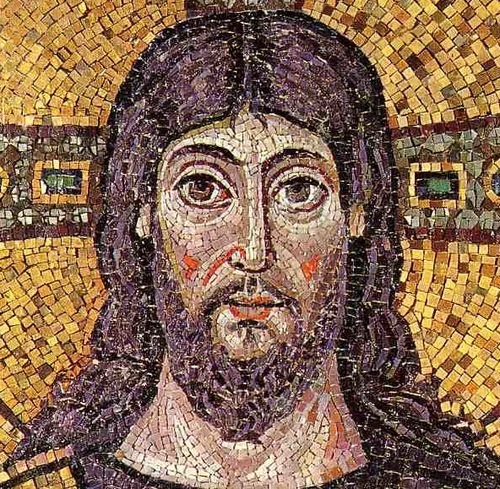I’m very much enjoying Samuel Gregg’s Reason, Faith and the Struggle for Western CivilizationI hope to review it more thoroughly once I’ve finished with it, but the opening section is brilliant on the birth of Christianity. Gregg’s thesis is that Western civilization is the product of Roman Christianity and if that foundation is destroyed the civilization crumbles.
In the opening section he discusses the remarkable rise of the church in the first 500 years. Christianity prospered for many reasons which are outlined brilliantly in Rodney Stark’s The Rise of Christianity. Gregg comes at it from a religious and philosophical viewpoint. The ancient world of the Roman Empire was a hugely diverse marketplace of ideas and religions. With the trade and travel going on from China and India in the East to North and Central Africa and then as far West as Spain and Britain, the centers of civilization were a melting pot of a huge number of cultural, religious and philosophical trends.
At the heart of these various streams of thought and faith there was the ancient pagan religions of various forms. These religions had nothing to do with ethics or morality. They were made up of a mish mash of myths, rituals, superstitions and what was essentially a sophisticated form of magic. Shamans and priests cast spells, did sacrifices and expected the faithful to pray, pay and obey in their ancient devotion to a whole pantheon of gods.
Layered on top of this was the development of philosophy by the Greeks and Romans–although philosophical and arcane strands of philosophy and gnostic wisdom were also present within the other ancient civilizations. Despite this the Greeks and Romans developed a purer form of philosophy and ethics. This philosophy, however, did not mix well with the ancient religions. The philosophers looked on the ancient religions with a mixture of disdain and respect–sometimes trying to pick out a strain of philosophy or wisdom from the ancient myths religions but generally being unsuccessful.
A third factor in all this was the religion of the Jews. The Jews had always stood resolutely against the paganism. They were really the only ones who did. Furthermore, their religion was recognized to be superior. The pagans followed capricious gods and believed their lives were controlled by fate. The Jews worshipped one God who was Lord and Creator of all things. The Jews also had from their foundational stories, the idea of human choice and free will. Out of this developed the Ten Commandments and a rational, reasonable code of ethics and morality.
The problem is, the Greeks and Romans may have admired the Jewish religion, but they despised the Jews. The Jews returned the favor by considering all Gentiles to be unwashed dogs. The Gentiles also found all the legalities of the Jewish religion to be absurd and impossible.
So Christianity comes into this conflict and the writers of the New Testament–St Paul especially, but also St John and St Luke–provide a marvelous synthesis. The sublime parts of Judaism are lifted out. The bigotry and legalism are left behind. In the New Testament St Paul and St John also lift the best ideas from the Greek poets, philosophers and myth makers. The early church also grabs all that is good from paganism…baptizing it and integrating it into the new religion.
The hand of providence is clear in this. St Paul says, “In the fullness of time God sent forth is Son born of a woman” (Gal. 4:4) and this fullness of time was the Roman Empire when all these strains of thought and religion were ripe for the plucking. Greek philosophy had reached a kind of end point. Pagan religions had gone stale and were in many places already dying out. Jews had spread across the empire through emigration, but their religion remained that of a tribe. It was too exclusive to really become universal.
The early Christian church, however, was able to be flexible and adaptable–not compromising with the world–but taking what was beautiful, good and true wherever it appeared and grafting it on to the vine which was Christ.
This, it seems, is illuminative for us at the present time. In many ways our world is at a similar turning point. The Pax Americana has established a world power in which trade and travel are happening everywhere. There is an increasing mixture of thought, religion, ideas and philosophies. What do we do when faced with the challenges of the Future Church (you should listen to my podcast if you’re not already!) What do we do when faced with the global growth of the church, the teeming slums of the huge urban centers in the developing world, the huge population surge in Africa and the shifting demographics of the dying West?
One reaction is to face this threat by running away. We run away in various ways. Some people try to take refuge in a Baroque fantasy religion–a hidebound and suspicious traditionalism that lacks all verve, creativity and dynamism. Others may retreat into a watered down Christianity that has become no more than moralistic, thereapeutic Deism. Still others will retreat into some denomination or religious order of their own making. Still others into a world of study and academia in which they wallow in theoretical abstract solutions.
Instead, if we learn from history we will see that the faith is always adaptive, but always the same. The risk we take is that we adapt too much or not enough. Discernment and proper authority in the church help us to walk that tightrope, and that discernment and proper authority of course comes with the infilling of the Holy Spirit.







Leave A Comment
You must be logged in to post a comment.